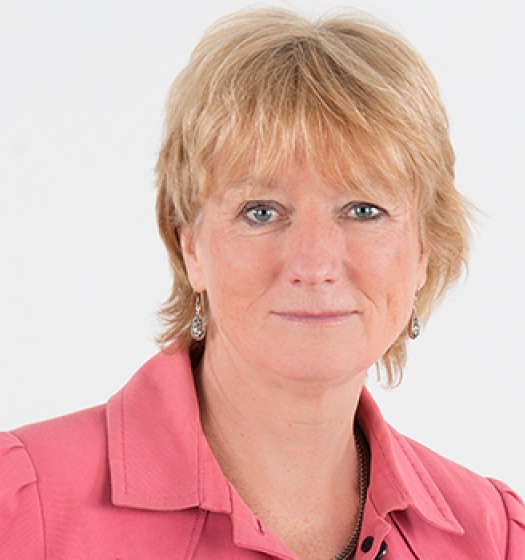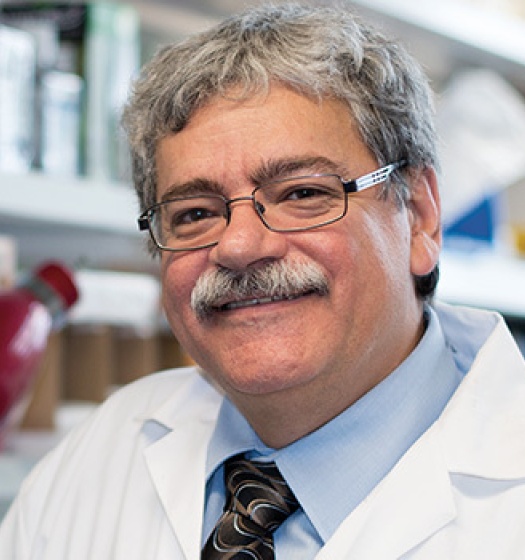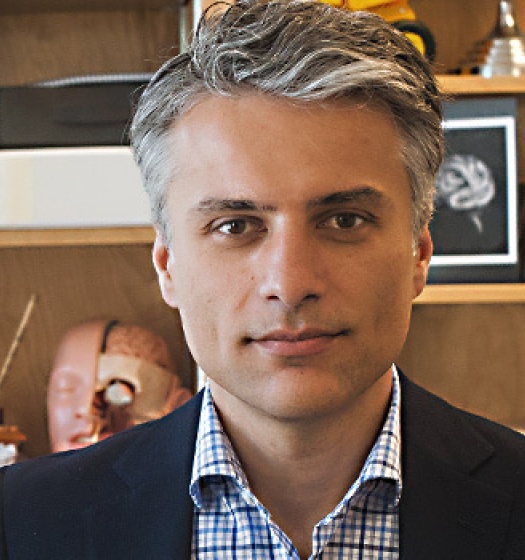Leaders in cancer research
It has been a year of noteworthy achievements for the Rosalind and Morris Goodman Cancer Institute (GCI), named for the benefactors whose 2008 gift energized cancer research at McGill.
Two investigators who have played leading roles in the Institute’s growth and success were honoured in 2021. Current director Morag Park, PhD, and former director Michel Tremblay, PhD, were awarded prestigious Prix du Québec for their exceptional scientific contributions.

Morag Park
Park is world-renowned for her discoveries on the breast tumour environment, and her investigations into tyrosine kinases have resulted in new therapies now used in the clinic. By uniting research groups throughout Quebec and Canada, she established the province’s first breast cancer biobank and the Quebec Cancer Consortium.
Tremblay is a globally recognized trailblazer in the study of protein tyrosine phosphatases, a class of proteins involved in many biological processes and diseases, including cancer. With a keen entrepreneurial spirit, he has successfully translated his findings into clinical practice by founding and collaborating with biotechnology firms.

Michel Tremblay
The GCI is also leading research into a cure for lung cancer, long stigmatized as “the smoker’s cancer” even though one in six patients have never smoked.
The Institute’s Lung Cancer Research Network (LCRN), supported by the Goodman Cancer Research Gala and many generous donors, offers real hope for patients and their families. Led by Dr. Jonathan Spicer, BSc’01, MDCM’05, PGME’12, PhD’14, and Logan Walsh, PhD, the Rosalind Goodman Lung Cancer Chair, the LCRN has already increased clinical trial capacity, improved access to precision medicine, and built an ambitious Intent to Cure Lung Cancer Research Program.
The Network is focused “on answering the most important questions about lung cancer: why do some patients respond to certain therapies while others do not? And how do we increase survival rates?” says Walsh. With donor support, the LCRN is poised to double lung cancer survivorship in the next decade.
Investigating the origins of brain cancer
Researchers at The Neuro (Montreal Neurological Institute-Hospital) have made a major breakthrough in understanding glioblastoma, the most common and aggressive type of malignant brain tumour.
A team led by Dr. Kevin Petrecca, BSc’94, PhD’00, MDCM’02, Chief of Neurosurgery at the McGill University Health Centre and leader of the Brain Tumour Research Group at The Neuro, has detected a progenitor glioblastoma stem cell – a cell type from which all other cancer cells develop.

Kevin Petrecca
The results of this groundbreaking work are transforming cancer research strategies across the globe. “Our work has gone a long way in resolving the complexity of glioblastoma heterogeneity, and it provides a new framework to reconsider the nature of glioblastoma,” says Petrecca.
Now his team’s objective is to uncover how and why these cells mutate into cancer cells. “Something causes the transition from normal to precancerous to cancer cells, and the research process is very clinically translatable, so we are also identifying targets as we progress,” Petrecca says.
The Brain Tumour Program at The Neuro has received significant support from private donors, foundations, and The Neuro’s annual gala, A Brilliant Night. This funding fuels novel and ambitious research in previously unexplored areas with immense potential for discovery. “Our donors are essential,” says Petrecca. “Without their help, research like ours simply would not advance the way it has.”
Supporting essential pandemic research
The past year has taught us that the race to beat COVID-19 is a marathon rather than a sprint – and the McGill Interdisciplinary Initiative in Infection and Immunity (MI4) is leading the pack.
MI4, a network of over 250 researchers from across McGill faculties and affiliated hospitals, mounted a swift response to the pandemic in early 2020 and established the MI4 Emergency COVID-19 Research Fund thanks to generous support, secured in partnership with the McGill University Health Centre (MUHC) Foundation, from donors such as the Doggone Foundation, the Trottier Family Foundation and the Hewitt Foundation.
Over the past two years, philanthropy has continued to fuel MI4’s essential contributions to public health. The Fund has provided support to 67 innovative research projects – including those highlighted below – with topics ranging from wastewater surveillance, to genetic markers that predict severe disease, to the psychological wellbeing of healthcare professionals.
Recognized among the leaders of Canada’s pandemic response, MI4’s researchers are advising policymakers through roles on the Canadian COVID-19 Therapeutics Task Force, the Quebec and Canadian vaccine advisory groups, and the COVID-19 Immunity Task Force, which is housed in McGill’s School of Population and Global Health (SPGH).
Predicting COVID-19 transmission
Mathieu Maheu-Giroux, MSc’06, MSc’09, an Assistant Professor at the SPGH, and several colleagues have built a mathematical model that generates predictions about COVID-19 transmission in Quebec.
“Our primary objective is to make sense of the surveillance data we have, so we can try to track in near real time what level of transmission we are experiencing and, based on that, what we are likely to experience in the next few days or weeks in terms of cases, hospitalization and mortality,” he explains.
This work is informing decision-making and is being used to help reduce mortality rates, protect the healthcare system and minimize social disruptions. Maheu-Giroux credits philanthropy for allowing him to quickly launch the project and assemble a communications team to share results with public health bodies.
Tracking vaccine development
Two other researchers at the SPGH, epidemiologist Nicole Basta, PhD, and biostatistician Erica Moodie, PhD, are the brains behind an online tracker that provides updates on the development of COVID-19 vaccines.
“Our goal with the vaccine tracker is to help the public find and access reliable information about COVID-19 vaccines, improve understanding about the vaccine testing process, and manage expectations about when a vaccine may be available,” Basta said when the project launched.
Now reaching over two million users worldwide, the tracker continues to provide comprehensive data on the safety, efficacy, and approval status of all COVID-19 vaccines.
Outreach in marginalized communities
There is growing evidence that the pandemic has had a disproportionate impact on certain communities, according to Dr. Cécile Rousseau, MSc’94, Professor in the Department of Psychiatry.
She and Dr. Alexandra de Pokomandy, MDCM’01, MSc’09, Associate Professor in the Department of Family Medicine, launched an outreach project called CoVivre to strengthen the COVID-19 response in at-risk communities. By partnering with local organizations, the project is helping to reduce infection risk, mitigate the psychosocial and mental health consequences of the pandemic, and combat misinformation online.
Based in Montreal, CoVivre is now having an impact nationwide thanks to a partnership with the CanCOVID network.

